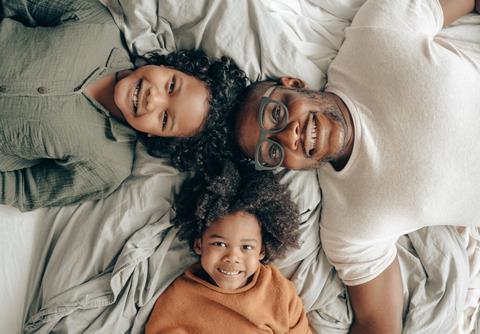Black children are more likely to end up in care, and less likely to be adopted. If we want to pursue God’s heart for justice, we need to address the racial inequalities that exist within our care system, says Simon Jay

The very first chapter of the very first book in the New Testament starts with the genealogy of Jesus Christ. There is something extremely powerful about this introduction; it firmly roots Jesus’ identity within a rich culture, people and ancestry.
They were a people who had known displacement and captivity. They were a people whoi had been subjected to slavery and oppression. Yet their story is also one of strong traditions, heroic leaders and a beautiful tapestry of art, literature and music.
Black children make up five per cent of the population but seven per cent of the children in care
Jesus knew who he was; he understood not just his identity as the Son of God, but he saw himself through the eyes and the stories of his ancestors.
Separated at birth
Many of our Black children and young people in the care system find themselves separated from their culture and the stories of their ancestors.
I was a young Black child who ended up in the care system, and I grew up in a family and a community where I did not see anybody who looked like me. I struggled with who I was and where I belonged and, over the years, I have talked to many other Black people who also grew up in a culture that did not see or celebrate their identity.
Current research has highlighted a significant inequality in how Black children experience the care system in relation to white children.
While Black children make up five per cent of the general population, they make up seven per cent of the children that are in care. In addition to this, Black children are less likely to go on to be adopted, and those who do wait longer to find their adoptive family.
This has a huge impact. Many Black children experience long waits, uncertainty, instability and disruption, which can affect their sense of self. Home For Good believes that this is an injustice, and we know that justice is at the heart of who God is. He cares deeply and infinitely about these children – and so do we.
Eyes to see
There has been a lot of important research done in this area. Dr Rudine Bishop explores the theory of how children experience the world through windows and mirrors. Children need to see themselves reflected in the world around them. This includes literature, TV, friends, education, theatre and sport - in fact, in all areas of their lives.
From this place of security, they can then begin to see the world through the windows of people who are different to them. In doing this, they develop strong feelings of safety and belonging.
Too many of our Black children are becoming lost in a system that does not see them
In contrast, Dr Bruce Perry explores how, when babies find themselves in a home where those in their ‘clan’ look different, the image that they build of themselves will be confused and conflicted. An older child, who grew up in their family of origin and then moved in with a family of a different race, will subconsciously highlight the difference, which affects their feeling of safety and sense of belonging.
Each and every child needs and deserves the stability, security and sense of belonging that will allow them to thrive. Each and every child needs someone – or even better, a community of people – who will care for them, support them and ensure their needs are met.
Praying for change
Too many of our Black children and young people are becoming lost in a system that does not see them. As we continue to strive for justice in this area, we want these children to know that they are seen.
Our bold hope is that, together, we can ensure every child is able to grow up in a family that can connect them with their identity and story.
Home for Good will be holding a series of events exploring these issues with Dr Peal Jarrett in London, Birmingham and Bristol. For more information, visit homeforgood.org.uk/pearl



































No comments yet